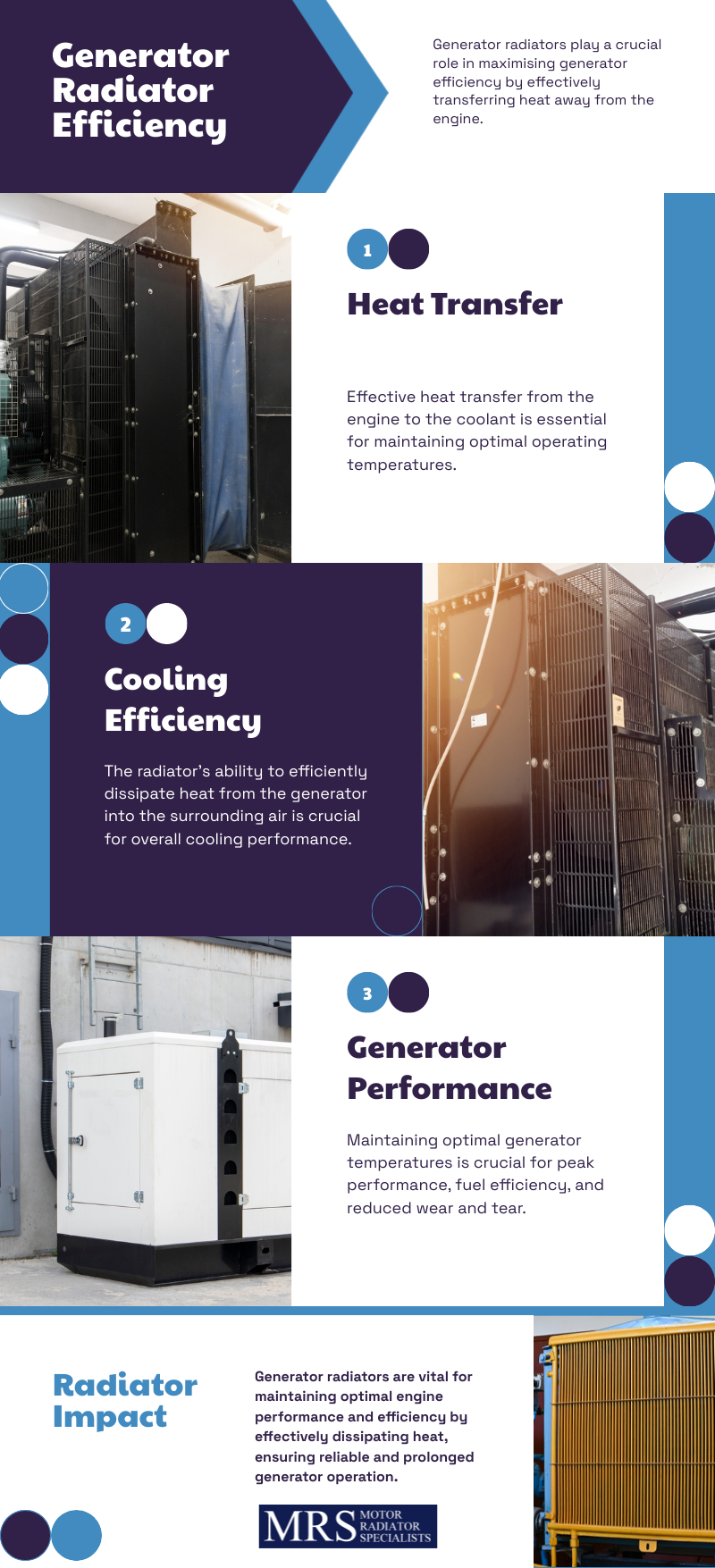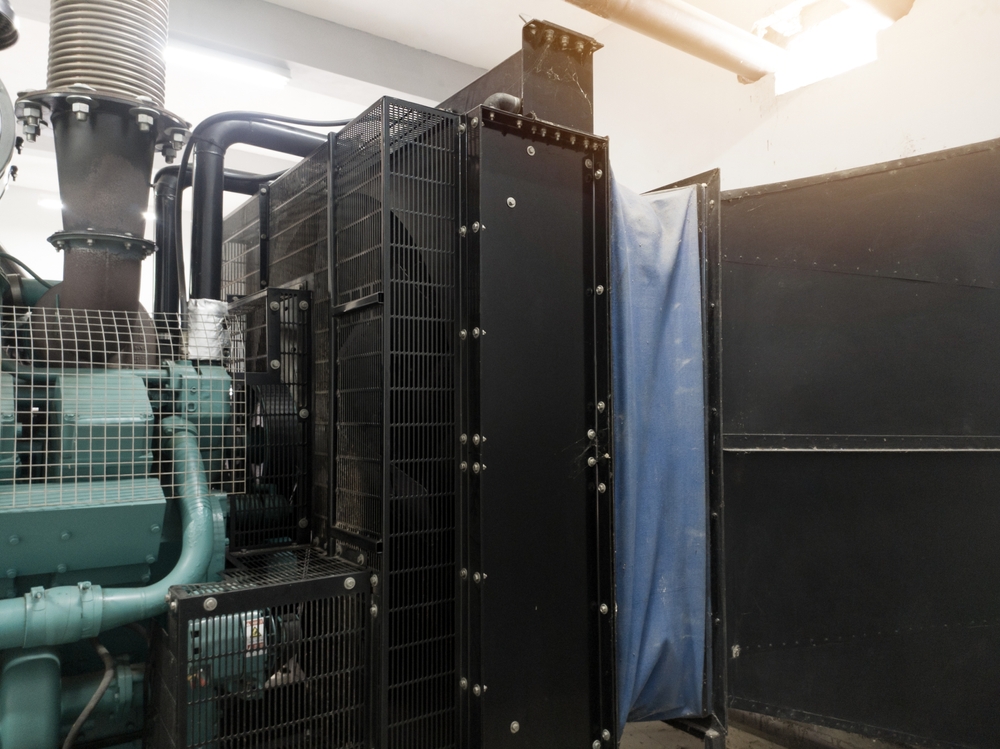As essential pieces of machinery, generators are used throughout a wide range of industries, including construction sites, hospitals, and homes, where these are crucial for providing a reliable power supply. However,a generator can create a lot of heat while in use, which can cause issues including overheating, reduced efficiency, and ultimately lead to failure. A generator radiator regulates the temperature of the generator for optimal operating efficiency, helping to prevent these issues. But what do you need to know about generator radiators and efficiency?
How do generator radiators work?
A generator radiator is a heat exchanger designed to dissipate the heat produced by the engine’s operation. To achieve this, the radiator circulates coolant through the engine block, absorbing heat before moving to the radiator, where the coolant releases this heat into the air. Fans often assist in this process, ensuring efficient heat dissipation. This regulating of the temperature is essential for preventing the generator from overheating, which is critical to its performance and longevity.

What do you need to know about generator radiators and efficiency?
There are a number of key factors in play when it comes to generator radiators and efficiency. These include:
- Temperature regulation- Temperature is one of the most important variables affecting generator efficiency. Engines operate optimally within specific temperature ranges. This means that if the radiator fails to regulate the temperature effectively, the generator may overheat. This in turn will cause engine components to expand and wear out prematurely. On the other hand, a generator running too cool may not burn fuel efficiently, leading to incomplete combustion and increased fuel consumption.
- Design and material- The design and material of the radiator directly influence its efficiency. Radiators made from high-conductivity materials like aluminium or copper transfer heat more effectively, ensuring the generator operates within optimal temperature limits. Additionally, advanced radiator designs that maximise airflow and coolant circulation enhance the generator’s thermal performance, leading to better efficiency.
- Coolant type and quality- The choice of coolant and its quality can have a significant impact on radiator performance. Using the correct coolant mix, which is typically a combination of water and antifreeze, can improve heat transfer and prevent corrosion. This is also essential for ensuring that the coolant does not freeze during colder months, maintaining efficiency throughout the year.
- Fan performance- The radiator fan plays a vital role in dissipating heat from the coolant. High performance fans ensure adequate airflow across the radiator fins, improving heat exchange. Fan speed and design, including blade pitch and material, are optimised to achieve the best cooling effect without excessive energy consumption.
- Airflow management- Obstructions to airflow around the radiator can significantly reduce its efficiency. Poorly ventilated installations or debris build up on radiator fins restrict airflow, forcing the generator to work harder to maintain its operating temperature. Proper installation and regular cleaning ensure unobstructed airflow and consistent cooling performance.
- Impact on fuel efficiency- Efficient radiator performance directly impacts a generator’s fuel consumption. This is because overheating forces the engine to work under stress, requiring more fuel to maintain power output. In addition, an inefficient cooling system may necessitate frequent shutdowns to prevent damage, interrupting operations and wasting fuel during restarts. By maintaining optimal radiator performance, generators consume fuel more effectively, reducing operational costs and environmental impact.
Maintenance and long-term efficiency for generator radiators
To keep your generator in top condition, all year round, maintenance for the radiator will be essential. This should include inspecting and cleaning the radiator fins, checking coolant levels, and ensuring there are no leaks or blockages in the system. Environmental factors like dust, rain, and temperature fluctuations can also cause issues, making maintenance practices even more critical. Neglecting this radiator maintenance can lead to corrosion, scale build up, or coolant degradation, all of which reduce cooling capacity and efficiency.
For professional generator radiator repair and replacement, we are the number one choice here at MRS Heat Transfer. we are radiator, car heater, intercooler, generator radiator, and air conditioning experts, and we have the skills, knowledge and expertise to resolve any generator radiator problem. Why not get in touch today to find out more?

